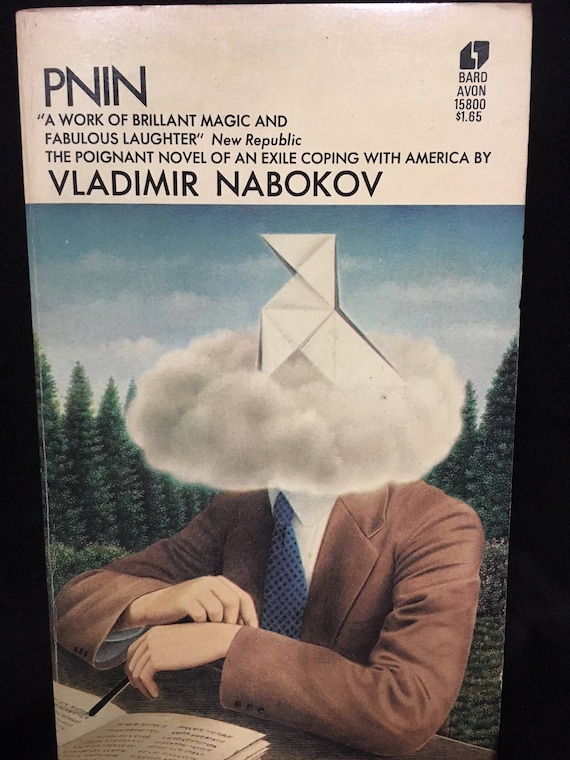Vladimir Nabokov's Pnin begins with the title character, a Russian professor and emigre in America, on the wrong train to deliver a guest lecture. He chases down another train, a bus, hitches a ride, and the whole time you feel like Pnin is headed to some blackly comic disaster, the kind of thing that cruel-hearted novelists do to punish minor flaws: a car accident or a mugging, maybe. But Pnin makes it to the college all right, a little later. Later on in the novel, we see Pnin from above, in his new car, having just learned to drive, moving like a beetle, ineptly trying to find the house of a fellow emigre. But ultimately, Pnin lucks out and finds a sign, which he follows to the house. At the novel's end, Pnin is washing his dishes--yes, this is a novel where the climax is a man washing his own dishes--when he drops a nutcracker and hears the crack of glass. Heartsick, he reaches in to find it's only a goblet that's broken, not the expensive and beautiful punch bowl given to him as a gift by his dear stepson.
It's not that nothing bad can happen to Pnin. He's a refugee from the Russian revolution, after all. We find out about an early beloved who became a victim of the Nazis, and in some of Nabokov's most heart-stopping prose:
One had to forget--because one could not live with the thought that this graceful, fragile, tender young woman, with those eyes, that smile, those gardens and snows in the background, had been brought in a cattle car to an extermination camp and killed by an injection of phenol into the heart, into the gentle heart one had heard beating under one's lips in the dusk of the past. And since the exact form of her death had not been recorded, Mira kept dying a great number of deaths in one's mind, and undergoing a great number of resurrections, only to die again and again, led away by a trained nurse, inoculated with filth, tetanus bacilli, broken glass, gassed in a sham shower bath with prussic acid, burned alive in a pit on a gasoline-soaked pile of beechwood.
But for better or worse, there's no country for forgetting the past like America. Pnin seems so vulnerable--his English is poor, he's been abandoned by his wife, he lives in a succession of rented rooms--but he is also charmed. Disasters loom but never happen, the house appears, the punch bowl doesn't break. Though his transition into America is long and difficult, he seizes it with a kind of gusto. When he has to have his teeth replaced, he is first sad at the loss, but comes to love the new false teeth, which he calls a "firm mouthful of efficient, alabastrine, humane America." And while Nabokov positions himself as a "friend" of Pnin's, inserting himself at rare moments into the narrative, it seems clear that Pnin is a kind of idealized version of Nabokov himself, for whom America is a kind of unalloyed blessing.
Hardly anything happens in Pnin. Scenes are set, and then seem to stall. His ex-wife, Liza Wind, begs him to take in her son for a while, and the scene between the teenager and Pnin, both equally bewildered, is very touching, but by the next passage the teen is shuffled off somewhere else. (He's the one that later sends the beautiful punchbowl.) Mostly, Pnin is a series of character sketches. They show us a Pnin who is a little absent-minded, mostly ignorant of the threat of disaster, who speaks English poorly but with great charm, who is somehow both roundly mocked and well-liked, who is a bad but well-respected teacher. Nabokov was certainly capable of writing a gripping plot (both Lolita and Despair are pretty tense!) but here he seems content to sit with his creation in the small rooms he occupies on the edge of a Northeastern college, and trusts that Pnin is charming enough that we'll feel the same way, too. And mostly he's right.


No comments:
Post a Comment